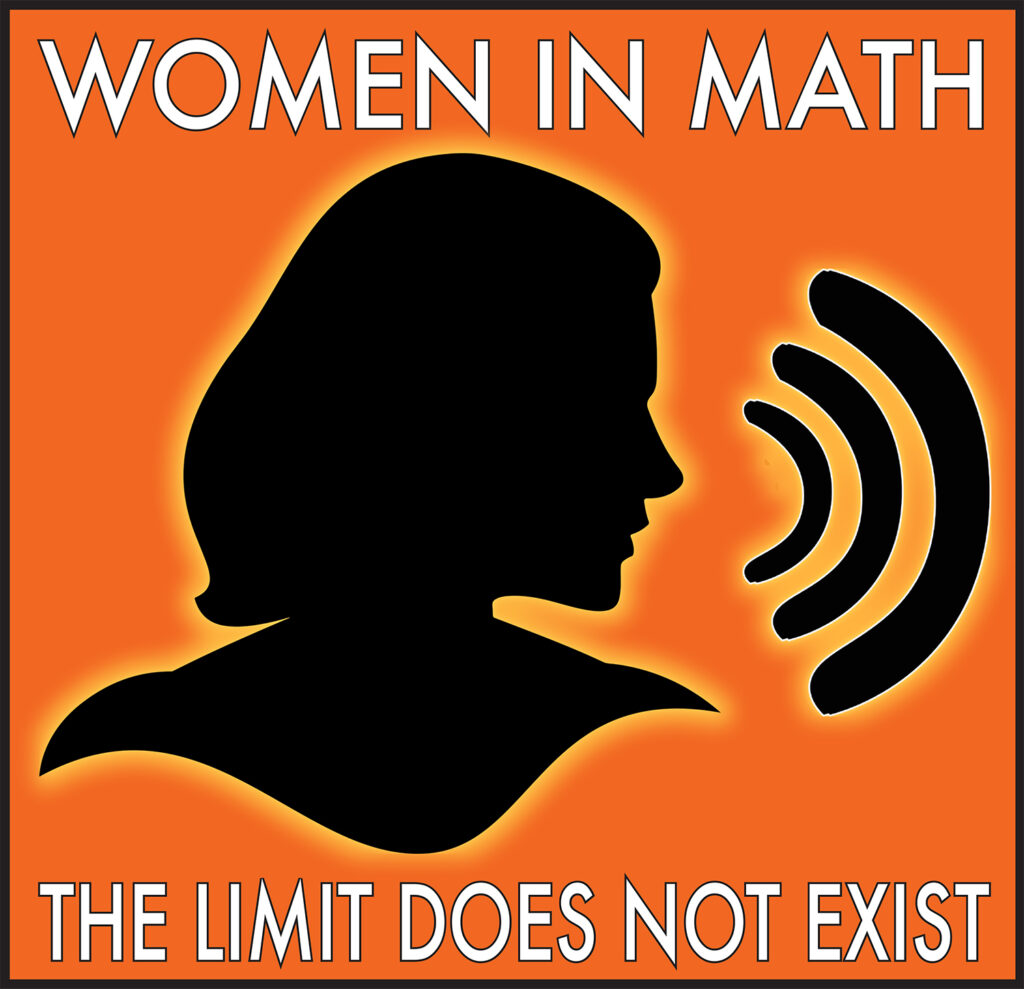In this series of posts, we’ll be featuring mathematical podcasts from all over the internet, by speaking to the creators of the podcast and asking them about what they do.
We spoke to math professor Damien Adams about Women in Math: The Limit Does Not Exist.

What is your podcast about, and when/why did it start?
Women in Math: The Limit Does Not Exist is an effort to promote the visibility of women in mathematics. I founded this podcast along with several young women in mathematics in October 2016 as part of a fulfilment of AMATYC (The American Mathematical Association of Two-Year Colleges)’s Project ACCCESS (Cohort 12), which aims to broaden the experiences of two-year college mathematics faculty and make them better teachers. The project only required me to “try something different” in mathematics, but I wanted to do something more.
The original inspiration came when a colleague of mine, Megan Caspers, passed me as my linear algebra class was filing out and commented on the number of men in my class. That one comment opened my eyes to the fact that I had only 5 female students out of over 70. Since then, I haven’t been able to unsee this disparity, and I want to do my best to use my privileges to provide opportunities for and representation to women in mathematics.
Who publishes your podcast? Tell us about yourself.
I fund and publish my podcast myself. I had a great deal of help from the Visual, Applied, and Performing Arts division at Cabrillo College when I started, and I now have support from my division at Portland Community College to keep making this podcast.
Who is the intended audience for the podcast?
The intended audience is actually everyone, with a specific emphasis on young women. This is not supposed to be a podcast just for and by female mathematicians; the podcast is meant to spread the visibility to a wider audience!
What is a typical episode like?
The episodes come largely in two types – biographies and conversations. The biographies are often around 4 to 8 minutes and jump right into a biography about a female mathematician. The conversations are typically much longer and range from about 15 minutes to 90 minutes. These conversations are typically very open in format with two or three women having a candid conversation about their experiences in mathematics courses (and beyond).
Why should people listen to this podcast?
People should listen to give much-needed attention to an often marginalized community in mathematics (and STEM). This podcast is an effort to promote visibility, and we should honor that visibility.
What are some highlights of the podcast so far?
I have really enjoyed hearing my current students identify themselves with the individuals in the podcast! There are so many experiences that we feel are unique to us, and we don’t talk about those experiences for many reasons. There is power is community, and there is power knowing that your experiences, though they are uniquely yours, are shared by others.
What exciting plans do you have for the future?
We currently have one episode that is finished that will be shared soon, and there are a few more planned! Also, I don’t have any concrete plans yet, but I’d love to get some updates on the women who first recorded four years ago!